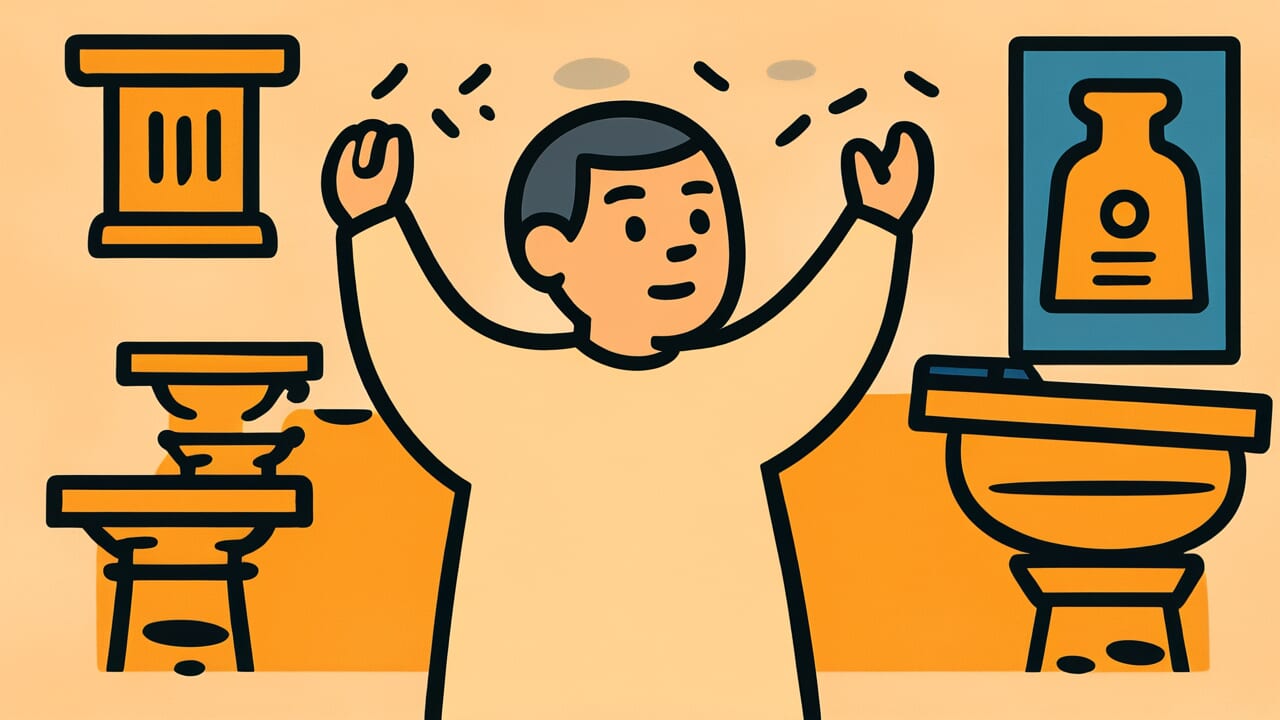How to Read “Filial piety is the foundation of a hundred virtues”
Kō wa hyakkō no moto
Meaning of “Filial piety is the foundation of a hundred virtues”
“Filial piety is the foundation of a hundred virtues” means that caring for your parents is the root of all good behavior. Various virtues needed to live righteously as a person—such as honesty, compassion, responsibility, and gratitude—all begin with the heart that cherishes one’s parents.
This proverb is used when discussing morality and character development. The idea is that people who can be grateful to and cherish their parents, their closest family, can also treat others with the same compassion.
The parent-child relationship is the first human relationship anyone experiences. The attitudes and values developed there become the foundation for all future relationships and actions throughout life.
Even today, this saying is understood as showing the basics of human development. It conveys the universal truth that gratitude and respect toward parents is the first step to becoming a trustworthy person in society.
Origin and Etymology
“Filial piety is the foundation of a hundred virtues” is believed to originate from ancient Chinese philosophical thought. It is strongly influenced by the Confucian classic “Xiaojing” (Classic of Filial Piety), which contains the expression “filial piety is the root of virtue.”
“Hyakkō” (hundred virtues) literally means “a hundred actions.” It refers to all good deeds and virtuous conduct. The number “hundred” is not meant literally but expresses “all” or “many.”
The character “moto” (本) means foundation or basis.
Confucianism organized the basics of human relationships into the “Five Relationships.” Among these, the parent-child relationship was positioned as the most fundamental.
This is because everyone is born from parents and raised by them—a universal human experience. The thinking was that if you cannot learn gratitude and compassion in this closest and most basic relationship, it becomes difficult to develop consideration for others and social virtues.
Confucian thought was introduced to Japan from China long ago. During the Edo period, it was widely studied, especially among the samurai class. This proverb likely became established among the people as these Confucian values took root in Japanese society.
Usage Examples
- He practiced “filial piety is the foundation of a hundred virtues” from a young age, so he became a boss respected by his subordinates
- What’s important in raising children is the idea that “filial piety is the foundation of a hundred virtues”—the parent-child trust relationship becomes the foundation of everything
Universal Wisdom
Behind why “Filial piety is the foundation of a hundred virtues” has been passed down for so long lies a fundamental truth about human growth. Everyone is born as a helpless being who cannot survive without parental protection.
In this relationship of absolute dependence, people first experience “receiving.” As they grow, they gradually shift to the “giving” side. This cycle is the basic mechanism that supports human society.
Gratitude toward parents is not simply a sense of duty. It arises from a deep emotion born of realizing you were unconditionally loved and raised.
People who know this emotion can also notice the struggles and kindness of others. Conversely, those who cannot recognize the debt closest to them will find it difficult to have true compassion for distant strangers.
What this proverb shows is the wisdom that virtue and good deeds are not understood intellectually but learned through concrete human relationships.
In the most primal relationship of parent and child, people learn to love, to be grateful, and to take responsibility. The attitudes cultivated there become the foundation for that person’s entire life.
Our ancestors saw through this essential process of human formation.
When AI Hears This
In network theory, structures where a few critically important nodes support the whole are called “scale-free networks.” On the internet, major servers play this role. In ecosystems, certain keystone species do.
Interestingly, while such structures are extremely efficient, they have a fatal weakness: if the hub breaks, the entire system collapses.
When we view “filial piety” as a hub node in the network of human relationships, a remarkable structure emerges. The parent-child relationship is the first connection formed in life.
The elements learned here—trust, responsibility, empathy—become the template for all future human relationships. In other words, friendships, mentor relationships, marriages, and all “hundred virtues” are like branches derived from this first hub.
In network theory terms, the “degree centrality” of the parent-child relationship is overwhelmingly high.
But here lies the sharpness of ancient Chinese insight. They saw not only efficiency but also vulnerability. People whose parent-child relationships are dysfunctional tend to reproduce that pattern in other relationships.
Cases where abused children become violent are precisely phenomena where hub damage spreads throughout the network. The phrase “Filial piety is the foundation of a hundred virtues” was extremely strategic wisdom: protect the system’s vital point with concentrated focus.
Lessons for Today
What this proverb teaches us today is the truth that growth as a human being starts with our closest relationships. Connecting with people worldwide on social media and speaking out about social issues is important.
But reflecting on whether we can cherish the parents and family right in front of us is the true starting point for human growth.
Filial piety might sound stiff, but it doesn’t require doing anything special. Small daily words of gratitude, time spent listening to others, little acts of consideration—through these familiar practices, you polish your compassionate heart.
And that heart will naturally reflect in your relationships with coworkers, friends, and everyone you meet in the future.
Modern society recognizes various values and ways of living. But whatever lifestyle you choose, a heart that doesn’t forget gratitude toward those who raised you becomes a solid foundation supporting you.
It’s not an obligation but an irreplaceable treasure that enriches your own life.



Comments